SIJO Reference Book
SIJO; Korea's Poetry Form
(Edited by Lucy Park and Elizabeth Jorgensen)
("This book is dedicated to all sijo educators, sijo poets, and sijo lovers.")
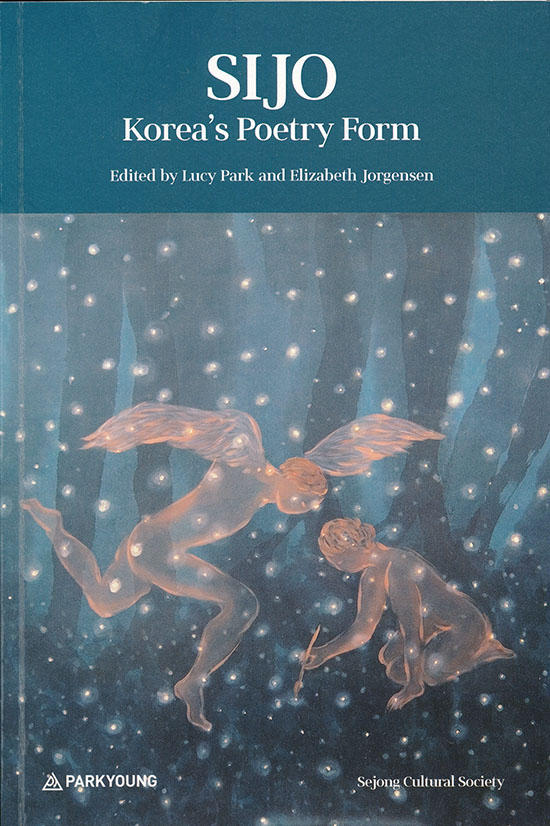
Publisher : Parkyoung (February 20, 2022)
Language : English
Paperback : 274 pages
ISBN-10 : 163519041X
ISBN-13 : 978-1635190410
Item Weight : 15.9 ounces
Copyright: Sejong Cultural Society
Book is available for purchase at
In Korea:
Purchased in Korea (16,000 won):
Sample Page Images
| Table of Contents Pages |
|---|
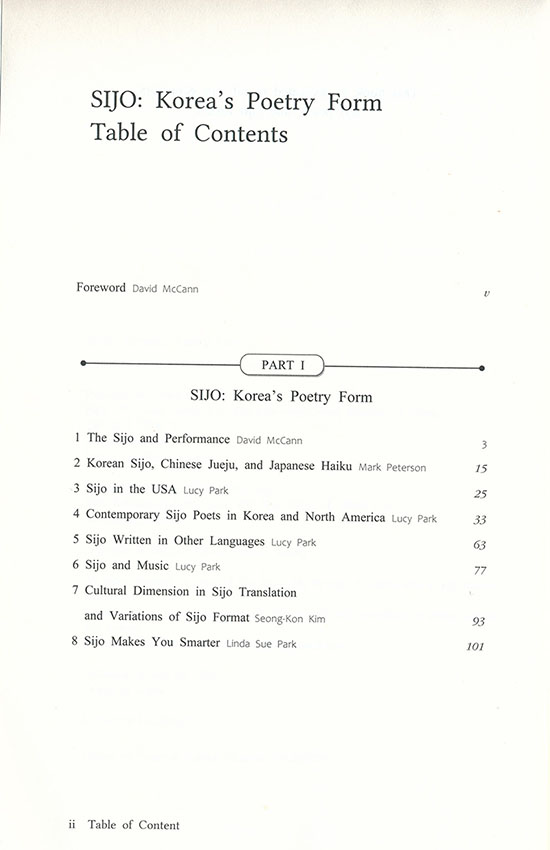 |
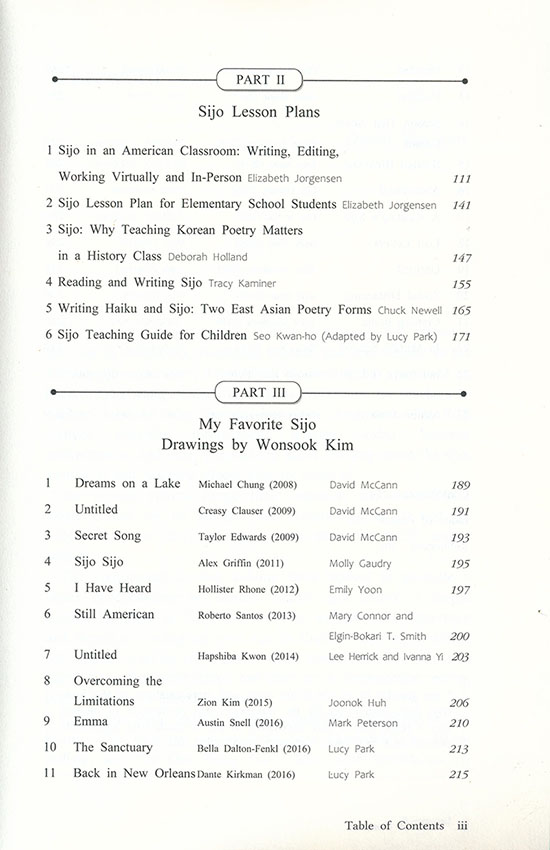 |
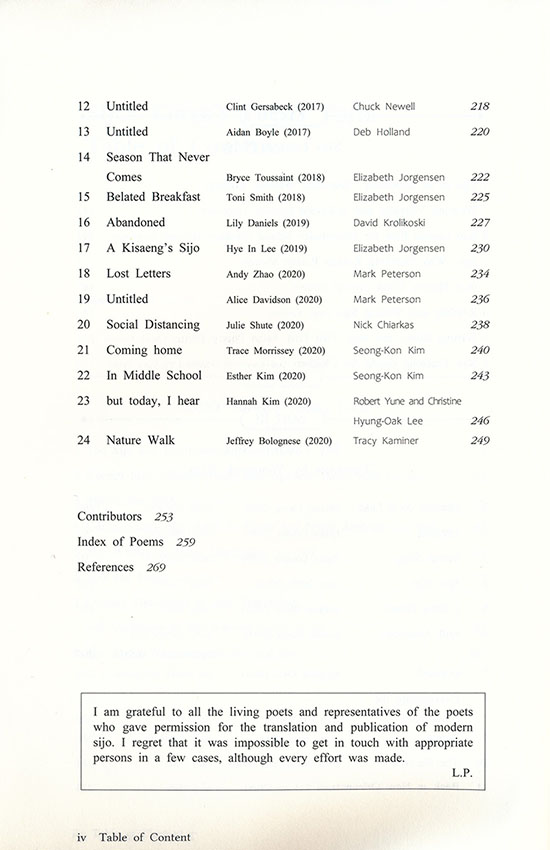 |
| PART |
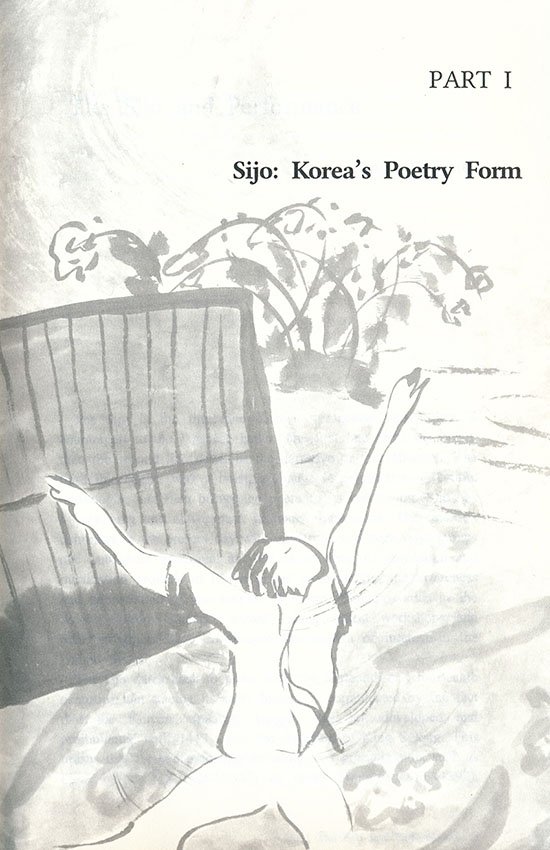 |
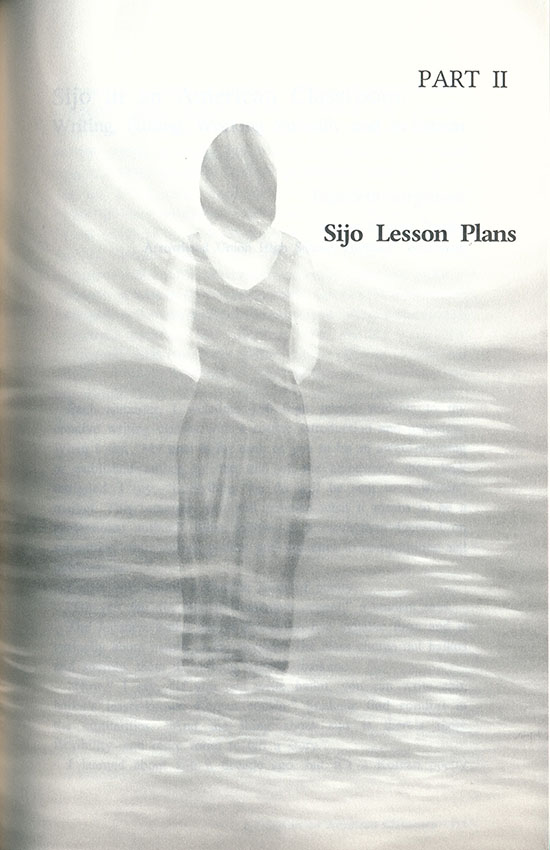 |
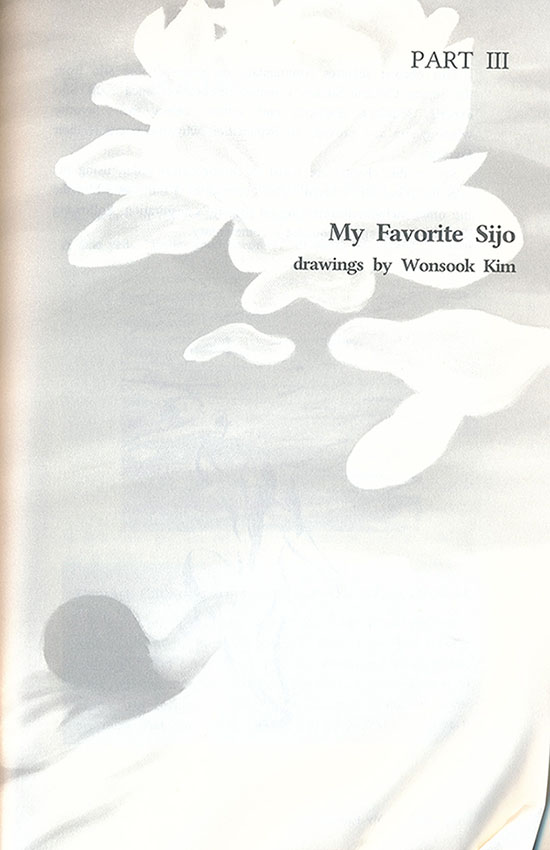 |
| Sijo |
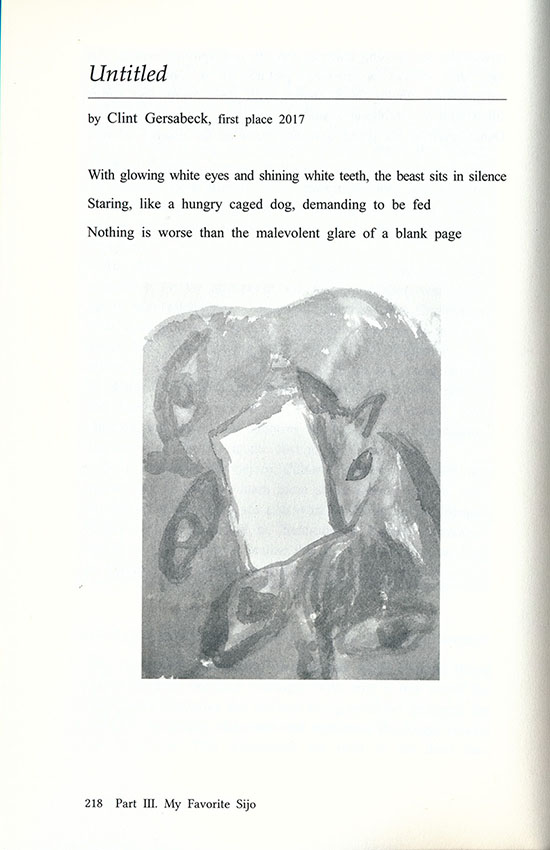 |
Sample page images posted to YouTube :
https://youtu.be/eHqRuYw1QCY
;
Images of sample pages from the newly published book:
SIJO: Korea's Poetry Form. (Edited by Lucy Park and Elizabeth Jorgensen)
- Includes images of the table of contents pages.
- The background music is selections from the recordings from the 2019 RUSH HOUR CONCERT -
"SIJO Poetry and Music" (video recording by Sejong Cultural Society)
Korean Art Songs written in Sijo Poetry format.
| Foreword by David McCann |
|---|
The Sejong Cultural Society (SCS) in Chicago has played a key role in developing awareness, interest, and involvement in the Korean sijo verse form. Since 2008, the Society has sponsored an annual sijo-writing contest, as well as workshops for teachers to explore ways to bring the sijo into their classrooms. The SCS website provides information, articles, video lectures, performances, and other materials to assist learning about the sijo, writing it and teaching others how to write it. The present volume brings these resources and more into a single unified set for teachers and writers in Part Ⅰ and Ⅱ, followed by an array of sijo poems from the SCS’ annual contest. The contributors to this volume have worked to promote a better understanding of Korean culture and history. I taught Korean literature at Cornell University and Harvard University and turned to writing my own sijo in English relatively recently. My chapter explores sijo’s performance dimensions, not only as a verse form that was sung, but also as a dramatically active, engaged form of literary culture. Linda Sue Park (author of two wonderful collections of sijo poems: Tap Dancing on the Roof, with illustrations by Istvan Banyai, and The One Thing You’d Save, with illustrations by Robert Sae-Heng) presents her reflections on her own discovery and writing of sijo. Dr. Mark Peterson has been involved with numerous international studies programs at Brigham Young University, as Director of the Fulbright Commission in Korea, and with other organizations in Korea and the United States. He sets the Korean sijo alongside the Chinese quatrain, jueju, and Japanese haiku. Elizabeth Jorgensen has worked with the Sejong Cultural Society in their teacher workshops and other activities. A teacher at Arrowhead Union High School in Wisconsin, her chapters present plans for teaching, editing, and virtual presentation of sijo. Dr. Lucy Park and the Sejong Cultural Society have organized workshops in Chicago and other cities, involved with not only the Society’s sijo projects, but also a wide range of other musical, artistic, and community efforts. Her chapters examine the sijo in contemporary music practice, the range of sijo poets in the contemporary literature scenes in Korea and North America, and the expanding range of the sijo’s practice and appeal in languages other than English. The sijo lesson plans present suggestions from teachers who have worked with students at all levels, from elementary through high school and college. Part III of this volume comprises a selection of sijo poems chosen from the annual Sejong Cultural Society contests going back to 2008. Delightful in and of themselves as poems, they also provide examples of what it takes to win a sijo contest, and reflections from experts on what they found appealing about the poems. The contributors to the volume, through a variety of efforts and approaches, share a lively dedication to the recognition and practice of sijo as a Korean verse form having many centuries of history, and to the encouragement of its present and future practice in other languages and cultures. Let us join the gathering!
|
Also, sijo collection from Sejong Sijo Competition winners sijo is available as an E-Book
Sijo activity in USA news as posted to Children's Sijo Magazine from Korea E-Book